Patcy N in Mumbai
Nagesh Kukunoor has always chosen to walk off the beaten track.
It could be one of the reasons why his career has seen such ups and downs.
While Iqbal and Dor were released to a phenomenal response, his next four films -- Bombay to Bangkok, Aashayein, Tasveer and Mod -- did not touch an answering chord with his audience.
An undeterred Kukunoor now presents his newest baby, Lakshmi, which columnist Shobhaa De has already described as a gut-wrenching, must-see film.
Singer Monali Thakur is Kukunoor's unusual choice for the lead role in the film, which takes an unsparing look at human trafficking and child prostitution.
Patcy N speaks to Kukunoor about his new film, its cast and why his recent films have been ignored at the box office.
Why did you choose to make a movie on child prostitution and human trafficking?
I find most of my stories by accident, from newspaper articles or when someone mentions some incident.
Lakshmi happened exactly the same way. Plan India called me for one of their events where I met a guy who runs a rescue home.
I visited the home and met all these women.
When you go to such a place, you expect to hear stories of despair. But when you meet them you are shocked to see that these women were abused but they are standing strong and having normal conversations.
That is heroic in my opinion.
You may feel strongly about something but still it doesn’t warrant a movie. I still didn’t have my emotional hook
Then I met this girl who had the guts to stand up in court against her traffickers. That’s when I thought I should make a film on them.
I never come up with a film with a message first; I always come up with a film with a story.
Once I have my story, then I figure out interesting and creative ways to give out the message.
'All the defence lawyers make the woman repeatedly say things to shame her'
Image: Monal;i Thakur in LakshmiIs this one particular girl's story or did you meet such abused girls and take elements from all their stories?
The core story is this girl’s story. That’s the lead story.
But I met so many women, so there are snippets from everywhere.
I made a 14-minute short film on these women for Plan India.
You want more details to tell your story, but asking for such details would be insensitive and make these girls re-live their trauma.
So, for the most part, I just asked broad and generic questions and left the camera running. I let them speak to the extent they were comfortable. If they wanted it, I was ready to push it.
I got the stories but with large holes, so I had to speak to social workers and NGOs. A lot of different stories are culled together.
What was it about this particular story that caught your attention? How did this short film for Plan India turn a into full-fledged feature film?
I am drawn to stories of heroism in the common man; I feel if they are presented nicely, they make for great cinema.
Whenever I hear these tales, I keep the clipping or a note in my book about the movie that I want to make.
In Lakshmi’s case, I had been hearing about the abuses that the women were subjected to. I could not imagine how, after coming out of it, a woman could go to back to a predominantly male court and tell her story.
The defence lawyers make the woman repeatedly say things to shame her so that she backs off.
They keep asking her for details and to have this little girl stand up there and tell her story…
'Monali Thakur is very convincing in the role of Lakshmi'
Image: Monali ThakurHow comfortable were the girls about sharing their stories? Why would anyone want to relive such a horrific incident in their life?
The NGO (Plan India) and social workers had clearly told me not to ask them anything that would upset them.
I told the girls that the video would help other girls like them.
At the same time, I told them they should only talk about things that they were comfortable with.
As a man I can only say these are my intentions, this is what I want. Not once did I probe them to tell me things that they were uncomfortable talking about.
The girls were either sold or cheated or they were abducted. These were the three broad categories.
They would say things like 'I was taken to this place, and this aunty was very bad with us, and then she made us do bad things.'
This could mean anything. Where do you begin? What bad things? As a filmmaker, I need details. If I don’t get details, I can’t put anything in the film.
I am itching to ask but it is those bad details that have traumatised these girls so you can’t ask more.
Some absolutely won’t talk about it. They are very clear.
But some girls will talk about it. One told me, ‘They just abused me, they were inhuman, this animal has to suffer. There were nights when they would send more than 15 men.’ She gave details like that. So it really depends on who you are talking to.
How did you decide that Monali Thakur, a singer, should be your Lakshmi in the film?
Originally I had cast a 14-year-old girl for the film. But the more time I spent with her parents, the more uncomfortable I became. I felt I was exposing this child who doesn’t know anything to such a horrific world.
There are lots of disturbing scenes in the film because I wanted the audience to see what these girls go through. That’s why I chose not to cast a 14-year-old.
I decided not to make the film until I got someone over 21 years old, whom I can direct as an adult but who looked young.
Purely by accident, I saw Monali at a party. I kept staring at her and later she told me that it made her uncomfortable. She thought that she was inappropriately dressed!
But I was forming a mental picture of her as Lakshmi, putting her in pigtails, dressing her up as a child and thinking whether she could pass for a 14-year-old.
Towards the end of the party, I approached her and asked if she was interested in acting, and she said yes.
I told her to come for the audition. She was amazing the first time.
What a polished actor she is! She is very convincing in the role.
'At the age of 14 girls are not conscious about their body like a woman would be'
Image: Monali Thakur in LakshmiHow did you get such a performance from her?
I am not like other directors who say I can make anyone act. Most of the actors in my films have come through auditions. I choose them based on the audition and their acting skill.
Sometimes, my judgment is wrong.
We had readings and costume trials. Readings are very important to me. I need to hear the actor’s voice and, eventually, I need to hear the character’s voice.
When I don’t hear it, I keep rehearsing till I find the right voice. Once I start hearing the character from the actor, then I don’t rehearse with them any more.
After a few readings, Monali got the voice right. She was intelligent enough to remember the voice that I liked and read it in the same way all through.
We also worked on how she will walk because, at the age of 14, girls are not conscious about their body like a woman is.
She understood the role and she understood my directions. I think she will make a good actress.
You have acted in seven of your movies, including this one. Isn’t it difficult for a director to act as well?
I enjoy acting as much I love directing. For me, the most important thing is to perform as a director. If my acting in the film interferes with my director’s duty, then I don’t act.
I thought I knew how to play my role of Chinna in Lakshmi. Later, I realised that I had bitten off more than I could chew.
I was writing, producing, directing and acting. It was a huge role, like the one I did in Hyderabad Blues (his debut film, which he acted in, directed and produced) at the start of my career 15 years ago.
We shot the film in 17 days. We had an aggressive shoot schedule. After three days of shooting, my body was hurting since now I am 15 years older.
But I felt that I could do justice to the role so I took it up.
While directing and acting, you have to isolate your work in your mind. I first rehearse my scene and work on it. On the set, since I am prepared for my scene, I concentrate on directing.
Once I have explained the scene to everyone and set everything in place, I go in front of the camera as an actor.
Elahe (Hiptoolah), my co-producer, helped me a lot. When I am acting, she takes over.
After the shot I go and check the whole scene to see how it has come out. But she handles it all when I am acting.
I have given her the credit of associate director on this film.
'The public ripped me apart'
Image: Monali Thakur and Fllora Saini in LakshmiAfter Dor, most of your films didn’t do well -- Tasveer, Aashayein, Bombay to Bangkok. You haven’t made a film since 2011. What went wrong?
What the director intends and what usually unfolds are events beyond anyone’s control.
I was advised by everyone to not make Bombay To Bangkok because, after getting a good response for Iqbal and Dor, the audience would react unfavourably to a mindless comedy, especially because they had branded me as a certain kind of filmmaker.
But I have always tried very hard not to repeat myself. All the films I have made are different.
I get terrified when people call me a social filmmaker. I want to make films on stories I am inspired by. So I went ahead and made Bombay to Bangkok.
But the public ripped me apart. They have typecast me.
Every filmmaker has a style; for example, Rohit Shetty makes action comedy. If he makes a serious drama, no one will go to watch it.
For the next four years I was in complete agony as none of my films did well.
My next film, Aashayein, got stuck because of differences between Reliance Entertainment and Percept Pictures and because of the court case.
By the time it released two-and-a-half years later, it had become dated and people had lost interest.
Tasveer released one year and 10 months later. At the time, there was a fight between distributors and exhibitors and all the theatres were closed down.
I have made another film with Percept called Yeh Hosla. They haven’t released it yet.
There is no excuse for why Mod didn’t work.
The delay in releasing Lakshmi is because we wanted to take the film to international festivals before we released it in India.
Films that go for festivals and do well there don't always do well here…
Absolutely true. There is no connect. However well your film does abroad at festivals, the box office in India has its own tune.
For me, it’s irrelevant. I am not worried about things like that. I feel a film like Lakshmi has a worldwide audience and I am not going to compromise.
What are you working on next?
I have many scripts ready. There is always an abundance of scripts and a shortage of money.
Usually, I just make any film next. But, this time I am going to think well before starting my next project.

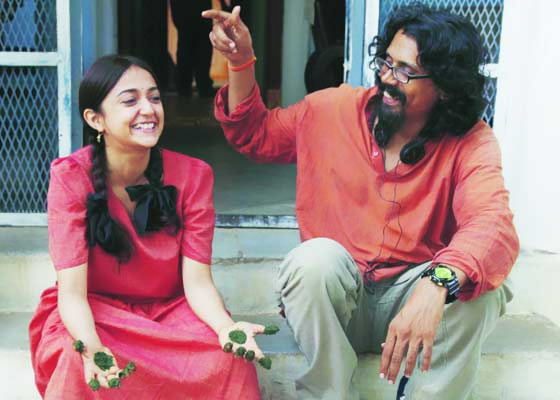
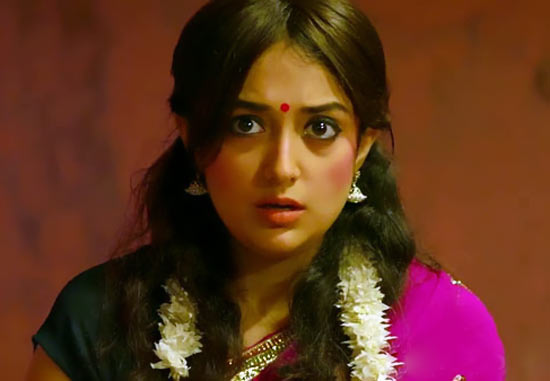
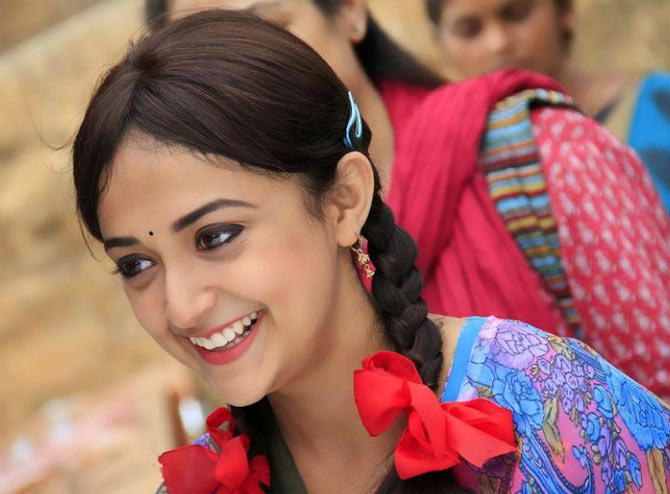
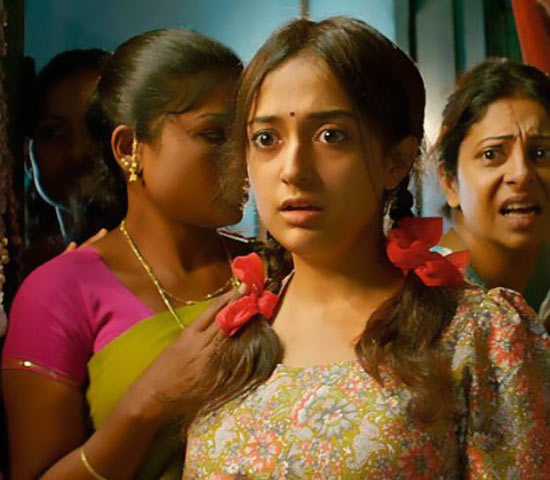
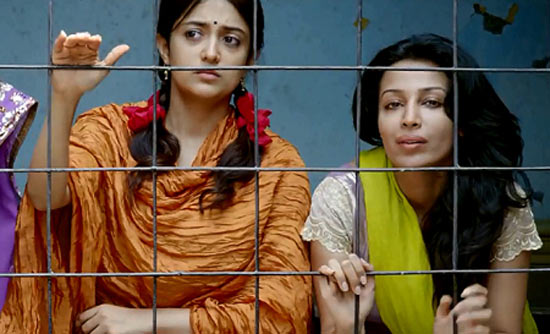
Comment
article